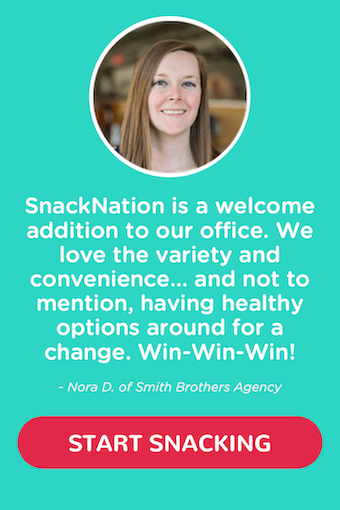
Wondering why you should test candidates before hiring them? Curious about the types of pre-employment testing available?
We know you have tons of questions about pre-employment testing, especially if you’re responsible for sourcing or administering tests. We’ve got you covered! Here’s your cheat sheet on many different types of pre-employment testing. Below you’ll learn the pros, cons, and key details of all the pre-employment testing out there so you can make the perfect choice for your company’s needs.
The Ins and Outs Pre-Employment Testing

It seems like a no-brainer: Testing employees to find out if they would excel at a job is a good idea. But in reality, testing comes along with some legal, emotional, and practical subtleties everyone should consider before launching a testing program.
What is pre-employment testing?
No surprises here! Pre-employment tests simply assess an applicant’s aptitude for the responsibilities of a particular open position. Here are some other terms for pre-employment tests:
- Aptitude tests
- Recruiting tests
- Hiring tests
- Personal assessments
- Candidate evaluations
- Employment screenings
The tests come in all shapes and sizes—we’ll get to those later—and they can be administered at any point in the application process.
Some companies, especially companies that get floods of applications for open positions, might choose to administer tests before they select candidates for interviews. This pre-screening step allows only those applicants well suited for the position to progress to the next levels of the hiring process.

Other companies may wait until the last few interview phases to administer the test. This makes final hiring decisions easier. If a hiring manager is struggling to choose between a few equally qualified candidates, then a pre-employment test can provide an objective way to reach a final hiring decision.
Why test candidates before hiring them?
There are a variety of reasons to conduct pre-employment testing. Here are just a few:
Fair hiring
Many hiring managers enjoy that tests focus on a candidate’s job-relevant merits instead of a variety of other shifting, intangible qualities that could influence perceptions during an interview. These qualities include superficial factors, such as appearance and body language, and personality traits, such as introversion or anxiousness.
Investment protection
According to thorough research, companies in the United States spend about $4,000 to hire a new employee. That’s a pretty hefty investment to find someone for a job. Layering on a test to validate that a candidate is the right candidate will help protect that hiring investment. Employees well-suited to their positions will be more productive and less likely to leave after a just a few years or even a few months.
Better job fits
Pre-employment testing ensures that a candidate is right for the job and vice versa. In fact, some reports show that tests may boost a hiring manager’s decision satisfaction by 36%.

Tests weed out promising candidates who may be ambitious, likeable, and smart, but who don’t necessarily have the precise skills necessary for a particular position. While many skills can be picked up on the job, some specialized positions demand capabilities that don’t lend themselves to “learning on the fly.”
Promising candidates who take jobs and end up with more than they can chew may grow frustrated and quit. Testing adds an extra layer of assurance that the candidate and the position are a match.
Are there any down sides to pre-employment testing?
Legal research and precautions
While most pre-employment tests are absolutely legal, there are a few cases where, if challenged in court, tests may be judged discriminatory. Discriminatory tests that promote “disparate treatment” or “disparate impact” intentionally restrict candidates based on race, color, religion, sex, or national origin. (For example, the U.S. Equal Employment Opportunity Commission says a physical agility test purposefully designed to screen out female applicants has disparate impact.)

Chapter 2 of this U.S. Department of Labor Employment and Training Administration guide covers legal concerns of employee testing in depth.
Tests may be expensive and time consuming to develop and administer
Whether companies decide to use vendors to develop tests or develop their own, the process of starting a testing program will likely be expensive and time consuming.
Before implementing a testing program, you’ll have to decide which positions to test for and what characteristics to test, develop plans for implementation, and so much more. You’ll also need people to interpret and process the results on an ongoing basis.
You’ll have to test your tests to make sure they’re reliable
Chapter 2 of this U.S. Department of Labor Employment and Training Administration guide covers a host of topics related to the quality, reliability, and validity of tests.
For example, a test would be unreliable if a person can take it twice and get radically different scores. This unreliability could be a result of different people scoring the test or even the mental state of the test taker.
The point? Tests can have hidden weaknesses that render them ineffective for properly screening candidates. Therefore, you’ll have to test your tests to make sure they’re designed to do what you want them to do.
Types of Pre-Employment Testing
You can administer a test to find out almost anything you want to know about a potential employee. Here are some of the most common types of pre-employment testing.
Aptitude and skills tests
Aptitude tests gauge an applicant’s ability to perform an entire job or specific aspects of the job. These tests are designed according to the skill or skills under evaluation, so each one will look different.

- An aspiring engineer might have to answer a series of challenging problem-solving questions that cover applied mathematics.
- A data-entry clerk candidate might have to take a series of typing tests.
- A business relationship manager interviewee might have to complete a variety of simulated client phone calls.
Key benefits of aptitude tests:
- The tests indicate if someone can do a job. In fact, some research suggests aptitude tests are better at predicting a candidate’s job ability than interviews or even past work experience.
- Popular aptitude tests come readily available in cost-effective standardized formats. You can probably find one that already exists, so you can save time on development. Plus, many of these tests may be easy to administer and even free to use.
Key challenges and limitations of aptitude tests:
- These tests might focus too much on skills. If companies weigh aptitude tests more heavily than interviews, then they might miss out on candidates with better culture or personality matches.
- They do not take growth and learning into account. Someone might perform poorly in one skill metric of an aptitude test, but that person might be a fast learner. That person might be able to surpass other candidates in that one area with just a little training, but an aptitude test would not indicate that. It would show only the missing skill.
Personality tests

Personality tests measure the core job-relevant characteristics of a candidate’s personality.
Some tests rely on the well-established Big Five personality traits: openness, conscientiousness, extraversion, agreeableness, and neuroticism. Other tests use different models, such as the Myers-Briggs Type Indicator and StrengthsFinder.
Most tests include a series of statements, such as:
“I feel comfortable around people.”
Respondents simply rate their agreement with each statement.
Key benefits of personality tests:
- You get a snapshot of personality features. These features could otherwise take years of acquaintance to learn. Understanding an employee’s personality is especially important if the job on the line absolutely demands specific characteristics. For example, an account executive would likely benefit from extroversion.
- You can use the results of a personality test even after you hire a candidate as well. You’ll already know what kind of training and work environments the employee needs and what projects he or she might enjoy.
Key challenges and limitations of personality tests:
- Personality does not conclusively predict job performance. Personality may be a good indicator of job aptitude, but it certainly doesn’t guarantee that employees will behave at work precisely the way they behaved on paper.
Tip! For more information about personality tests in the workplace, try out SnackNation’s guide to Myers-Briggs at work!
Biodata inventories

These tests (or questionnaires) collect information about a candidate’s job experience and relevant personal-life characteristics, including hobbies, interests, attitudes, and social interests.
Key benefits of biodata inventories:
- Some experts say these tests can supplement cognitive and aptitude tests by predicting aptitude in things like interpersonal relationships and workplace motivation.
Key challenges and limitations of biodata inventories:
- Some fear these tests can be easily faked. Creative applicants may fabricate any number of enriching personal experiences they believe appeal to potential employers.
- These tests may be biased against certain socio-economic groups. If the surveys ask for detailed lists of extracurricular or community-service activities, then candidates who say, had to work full- or part-time throughout college, may not look at polished as more fortunate applicants.
Honesty and integrity tests

A sub-type of personality tests, honesty and integrity tests try to measure the likelihood a candidate might commit theft, abuse substances, skive off work, and engage in other unfavorable behaviors.
According to the U.S. Department of Labor Employment and Training Administration, questions on these tests focus on opinions, attitudes, and rationalizations of and about questionable behaviors.
Key benefits of honesty and integrity tests:
- These tests might come along with a reduction in workplace discipline and also a drop in unfortunate incidents related to dishonestly or other unethical behaviors. Some research even shows that honesty testing actually does reduce dishonest behavior in the workplace.
- These test don’t inadvertently favor one particular gender or ethnicity. Almost no major response-difference trends exist across the key population subgroups.
Key challenges and limitations of honesty and integrity tests:
- The tests might go too far. According to Workable, questions related to moodiness might be subtly trying to root out candidates with personality disorders, a discriminatory recruiting practice
- Some people might know how to answer the questions, rendering the tests ineffective. It’s challenging to get truly candid answers on these tests, and developing questions that spark honest answers could be labor intensive. Here’s a weigh-in on this from the U.S. Office of Personnel Management:
“Overt tests often contain questions that ask directly about the applicant’s own involvement in illegal behavior or wrongdoing (e.g., theft, illicit drug use). Such transparency can make guessing the correct answer obvious.”
What are your thoughts on pre-employment testing? Let us know if you’ve ever taken one and what you thought about it!







Hi Ashley,
Loved your blog, I also checked the links they are quite helpful. 🙂
This article explains pre-employment testing and why some companies prefer to use them as part of their hiring process. Pre-employment testing is exactly what it sounds like, tests the applicant’s aptitude for responsibilities of an open position they may be pursuing. Some companies may be flooded with applicants so many of them could be using these tests to determine which applicants they would want to select for interview. However, they can be performing these for other reasons like investment protection, even plain field for applicants or simply seeing how well the candidate fits for the position. I personally know businesses that use these tests before looking at experience or educational background especially operational, printing press and machine operator positions. In fact, there are people I’ve heard coming from 20 years of machine, oil and plant experience who came in and still failed the pretest because many of these companies often times are looking at one particular area on the test as opposed to the overall score. This would be equivalent to an aptitude test the article mentions which I personally don’t think this considers growth and learning when looking at the quality of the candidate. This is a clear limitation of the tests for me. Great Read!
You described some relevant point on pre-hire assessment very easily. It is so much important for the employers to recruit employees. By right pre employement assessment test the organization want to imrpove the company’s growth.